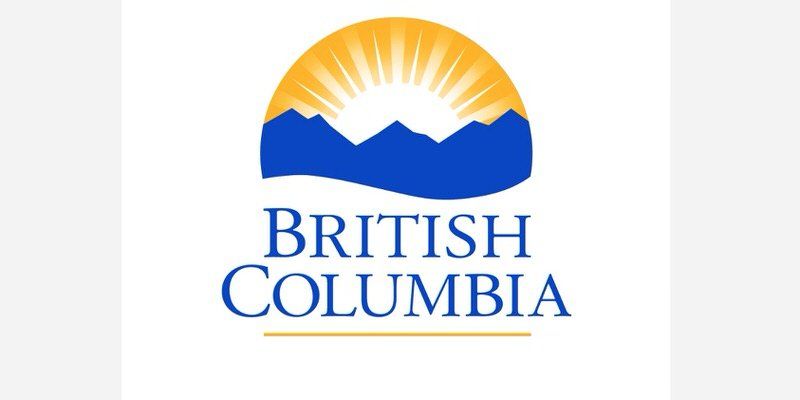Taking Bold Action on Housing - New Program for First Time Homebuyers
Today the BC government introduced an innovative new program designed to assist first time home buyers with their downpayment. BC is now offering interest-free loans up to $37,500 to first-time homebuyers. The following is from the government website!
Every British Columbian deserves a place to call home. That is why we are taking action by controlling the cost of housing, increasing access to affordable rental units, and partnering with families to help make their dream of home ownership come true.
Achieving that dream can be challenging for first-time home buyers. With the launch of the B.C. HOME Partnership program, first-time home buyers have more options than ever to help them get their foot in the door.
Learn about the Housing Action programs you may qualify for today. Whether you are renting, buying or renovating, B.C. is working to keep housing affordable for you.
B.C. HOME Part nership
From middle class families to young professionals, first-time home buyers are looking to invest in a secure and stable future.
For many British Columbians dreaming of buying their first home, the hardest step is saving for a down payment. That is why the Province is partnering with British Columbians to help make that dream come true, through the B.C. Home Owner Mortgage and Equity (HOME) Partnership program.
Through the B.C. HOME Partnership program, the Province is helping first-time home buyers by contributing to the amount they have already saved for a down payment with a loan that is interest-free and payment-free for the first five years.
Here is how it works:
- The B.C. HOME Partnership program will meet the buyer’s contribution up to 5% of the home’s purchase price, to a maximum purchase price of $750,000.
- After five years, buyers can either repay their loan or enter into monthly payments at current interest rates.
- Loans through the program become due after 25 years – the same length as most mortgages.
The B.C. HOME Partnership program will start accepting applications Jan. 16, 2017. To apply, click here .
British Columbians buying their first home can also get help through other Housing Action programs like the First Time Home Buyers’ Program and the Newly Built Homes Exemption .
Housing Action
As B.C.’s economy and population continues to grow, it is important that we take bold action to ensure that all British Columbians have access to affordable and appropriate housing.
The Province’s commitment to Housing Action is driven by six key principles:
- Ensuring the dream of home ownership remains within the reach of the middle class
- Increasing housing supply
- Smart transit expansion
- Supporting first-time home buyers
- Ensuring Consumer Protection
- Increasing rental supply
Below you will learn how the Province is putting these principles into action.
Controlling the Cost of Housing
- As B.C.’s economy has grown, our housing market has attracted increased investment,. This has raised the overall cost of housing.
- To ensure that the dream of home ownership remains within reach of the middle class, the Province is taking action to control the cost of housing:
- 15% tax on foreign home buyers in Metro Vancouver
- 3% luxury tax on the purchase of homes over $2 million
- Property Transfer Tax revenue tied to a new Housing Priorities Initiative Fund used for investments in rental and social housing
Increasing Access to Affordable Rental Housing
- In 2016, B.C. committed to investing $855 million in to affordable rental housing – the largest housing investment in a single year by any province.
- This will support the construction of 4,900 new units of affordable housing across B.C.
- These units provide affordable housing options for those that need it most, including renters with low-to-moderate incomes, women and children, seniors, Aboriginal people, and people with disabilities.
- The Province has also taken action to enable the City of Vancouver to increase the supply of rental units.
Protecting Consumers from Risk
- Following a review of the B.C. real estate industry’s self-regulation practices, it was determined that the sector had failed to adequately protect consumers.
- The Province took action to improve transparency, accountability and consumer protection, including:
- Ending self-regulation of real estate industry
- Increasing the power of the superintendent of real estate
- Increasing penalties and fines for offences
- Requiring higher standards for licensees
Helping Home Buyers
- The Province offers a number of Housing Action Programs and Services to help British Columbians save money when purchasing or renovating a home.
- The Newly Built Home Exemption Program can save buyers up to $13,000 when purchasing a newly built home.
- The First Time Home Buyers’ Program can save buyers up to $7,500 when purchasing their first home.
- Through the new B.C. HOME Partnership program, the Province is partnering with British Columbians to provide about $703 million in loans over the next three years, to help around 42,000 B.C. households enter the housing market for the first time.
To learn about B.C.’s strategy for smart transit expansion, check out our 10-year transportation plan BC On The Move .
BC Government Program FTHB by Mortgage Resources on Scribd
SHARE THIS ARTICLE
RECENT POSTS









